
The fully humanized monoclonal antibody led to results among patients with generalized myasthenia gravis (MG) similar to that of efgartigimod, the authors said.

The fully humanized monoclonal antibody led to results among patients with generalized myasthenia gravis (MG) similar to that of efgartigimod, the authors said.

The Mendelian randomization–based analysis, which examines how variation in genes have a causal effect of an exposure on certain outcomes, identified 12 gut microbiota associated with either an increased of or protective effect against MG.

After being found effective over longer durations with smaller doses, this study found that nipocalimab infusions resulted in a tolerable safety profile and remained effective even in shorter treatment periods and with larger doses.
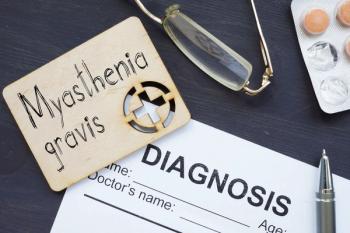
Based on data from the study, a phase 3 confirmatory trial is underway for the humanized monoclonal antibody.
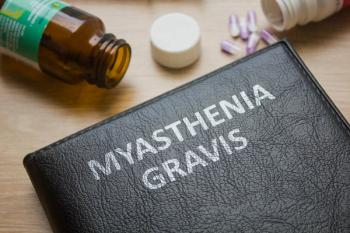
Details from the final interim data analysis of the ADAPT+ study confirm previous findings seen with efgartigimod (Vyvgart) in generalized myasthenia gravis (gMG), the rare neuromuscular autoimmune disease.
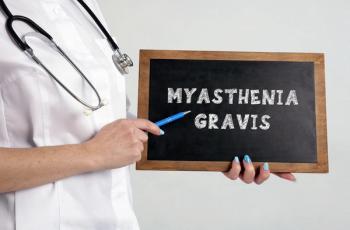
Dubbed the FLEX trial, the study will explore whether batoclimab will address important patient needs throughout different phases of the myasthenia gravis (MG).
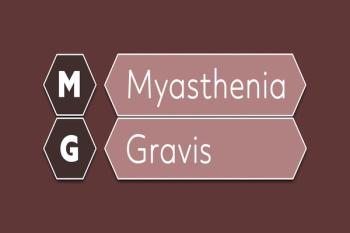
Investigators observed an increase in the prevalence of Alzheimer disease in patients with diagnosed myasthenia gravis (MG), which indicates that MG is an independent risk factor for AD.
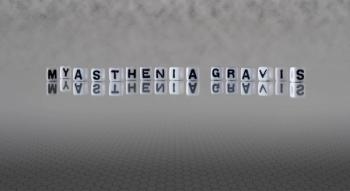
Researchers have retrospectively analyzed data from nearly 60 patients with ocular myasthenia gravis (MG) not adequately responding to oral prednisone, finding that both intravenous (IV) methylprednisolone and tacrolimus monotherapy helped reduce symptoms.

Since 1987, only 57 cases of comorbid Parkinson disease (PD) and myasthenia gravis (MG) have been reported.
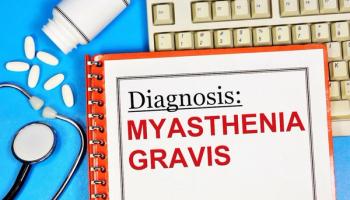
The data search of Web of Science Core Collection, spanning 2003 to 2022, identified various prospective directions in myasthenia gravis (MG) research, including in personalized treatment, subtype-based treatment, and novel immunotherapeutic strategies.

The data suggest this burden among patients who have myasthenia gravis (MG) is prevalent across insurance types.

Once treated with a one-size-fits-all approach, changes in the landscape for myasthenia gravis are allowing for more precise treatment of the disease.
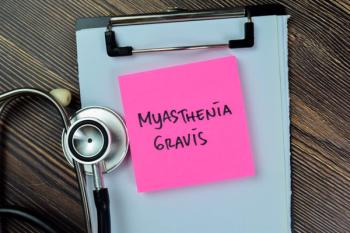
Following implementation of low-dose rituximab as standard of care for muscle-specific kinase–positive myasthenia gravis (MuSK-MG), a hospital evaluated the treatment’s efficacy over a 2-year period.
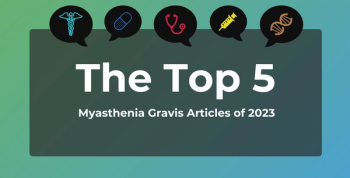
In our coverage of myasthenia gravis this year, the top developments show the effects of COVID-19 continue to be uncovered, a new FDA approval for generalized disease, and assessing patient outcomes following uncontrolled disease and respiratory distress.
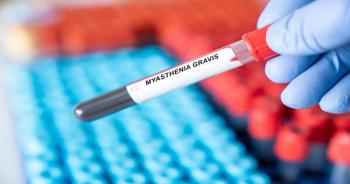
Two doses of batoclimab were evaluated for their effectiveness in patients with generalized myasthenia gravis (MG) who were seropositive.

The chimeric antigen receptor T-cell therapy (CAR T) from Cabaletta Bio has already been cleared for trials in systemic lupus erythematosus, myositis, and systemic sclerosis.

Patients living with myasthenia gravis in Australia were surveyed their demographic information, clinical features of the autoimmune disease, adverse effects from treatment, and quality of life. Outcomes were compared against 2011 data from Australia and 2019 data from the United States.
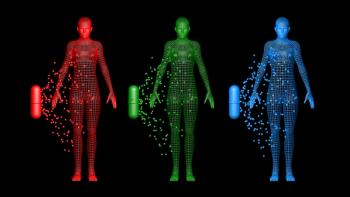
A case report highlights the benefits of applying patient-tailored therapies to mitigate the effects of neuromuscular immune-related adverse events and improve patient outcomes.

The therapy is already being evaluated in patients with lupus nephritis and diffuse cutaneous systemic sclerosis.

This new study sought to solidify a relationship between certain microbes in intestinal flora and the risk of developing myasthenia gravis, specifically those potentially reducing that risk.

Research presented at the 2023 American Association of Neuromuscular & Electrodiagnostic Medicine Annual Meeting emphasizes the potential need for patient support programs targeting at-risk populations to enhance disease management and reduce acute care utilization in myasthenia gravis.
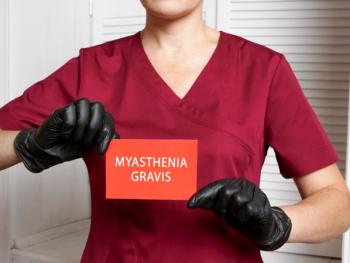
When patients are undergoing treatment for cancer, clinicians should be aware of the potential to develop myasthenia gravis from immune checkpoint inhibitors (ICI), new research stresses, with ongoing surveillance and risk factor identification becoming necessary steps.

A retrospective study presented at the 2023 American Association of Neuromuscular and Electrodiagnotsic Medicine meeting revealed that social determinants of health (SDOH) are linked to poorer treatment outcomes in patients who have myasthenia gravis, emphasizing the need for identifying and supporting at-risk individuals.

Investigators evaluated the utility of the MG Symptoms Patient-Reported Outcome (PRO) within the armamentarium of instruments that currently evaluate myasthenia gravis (MG) severity.

This case report details an incident of pembrolizumab-induced myasthenia gravis in an elderly male patient being treated for urothelial cell bladder cancer.

259 Prospect Plains Rd, Bldg H
Cranbury, NJ 08512
© 2025 MJH Life Sciences®
All rights reserved.
